
Transcription
*This was for a graduation speech in the T.C. Program here in 2005.
Recovery and Relapse
Relapse is a reality. It can and does happen. Time has proven that those who don't work on recovery on a daily basis stand a great chance of relapse. Some stay clean for years before they relapse. Usually, when this happens, it is worse than before.
Relapses can be fatal. Those who live, though, are often lost for years living in misery. Many of us end up in jails or institutions if we live long enough.
On a daily basis, we are subject to emotional and spiritual lapses, which causes us to become powerless over drugs. Because addiction is incurable, we will always be subject to relapse.
Relapse is never forced on us. It is a choice that is made. Usually, this happens when we get away from a recovery program and try to make it on our own. We fall into the illusion that drugs will make life easier. We think they can change us even though these changes can be fetal. When we believe that drugs can solve our problems, we are in real trouble. We may begin to reject those who were close to us and isolate ourselves. After a period of time we are sick of ourselves and use again. Letting resentments build up can also cause a relapse.
Most addicts share a characteristic called obsessive behavior. There are times when we try to fill ourselves up till we are satisfied, only to find there is no way to satisfy us. Part of our addictive pattern is that we can never get enough. Self-will leads us to make decisions based on manipulation, ego, lust, or false pride—we don't like to be wrong. We also try to do things on our own, but usually fail to stay clean this way.
One of the biggest stumbling blocks to recovery seems to be placing unrealistic expectations on others and ourselves. Relationships can be a painful area. We tend to fantasize and project what will happen. We get angry and resentful if our fantasies aren't fulfilled. We forget that we can't control other people. The old thoughts of loneliness, despair, helplessness, and self-pity creep in. All positive thoughts leave our consciousness. This is when we have to keep our recovery first and our priorities in order.
It is important to remember that the desire to use will pass. We never have to use again, no matter how we feel.
Our recovery is a continuous, uphill journey. Without constant effort we start a downhill slide. Good ideas and intentions are for nothing if we don't act on them. Seeking help is the beginning of our struggle. It will break down the walls of our disease that imprison us and alienate us.
We all find the feeling we get from helping others motivate us to do better in our lives. If we are hurting, as most of us do from time to time, we learn to ask for help. We have to remember that we are dealing with a power greater than we are. This power can cause us to relapse. If we relapse, we must get back to our program of recovery as soon as possible. We can never fully recover, no matter how long we stay clean. When we believe we have, then we tend to get lazy. That is usually when our recovery process stops. Symptoms of our disease return, denial, obsession, compulsion are just a few. Fear, guilt, remorse and pride can nail our backs to the wall. If we become obsessed with using, we are doomed.
Sometimes we can fall into another trap. We doubt that we can stop using and stay clean. We lose our self-respect and beat ourselves up mentally.
Another type of relapse happens when staying clean isn't the top priority. We have to remember that staying clean must always come first. At times we will all face difficulty in our recovery. Those who make it through those times will grow stronger and smarter. We gain valuable knowledge that we can use next time.
If we relapse, we may feel guilt and embarrassment. While our relapse is embarrassing, we have to swallow our pride. It is best to admit it and get back to our recovery program as soon as we can.
As long as we keep an attitude of thankfulness for being clean, it's easier to stay clean. The best way to express this is to share our experiences with other addicts.
In closing I just want to say the first thing we must do is stay clean. This makes the rest of our recovery possible. As long as we stay clean no matter what, we have the greatest possible advantage over our disease. There is no shame in relapse. The shame is not trying again.
Richard Blackstone
#125637
7/2/5
Other posts by this author
|
2024 may 16
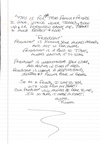
|
2023 may 3
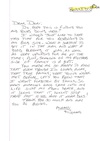
|
2013 mar 1

|
2013 mar 1
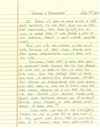
|
2012 aug 19
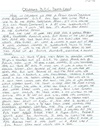
|
2012 jun 13
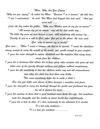
|
More... |
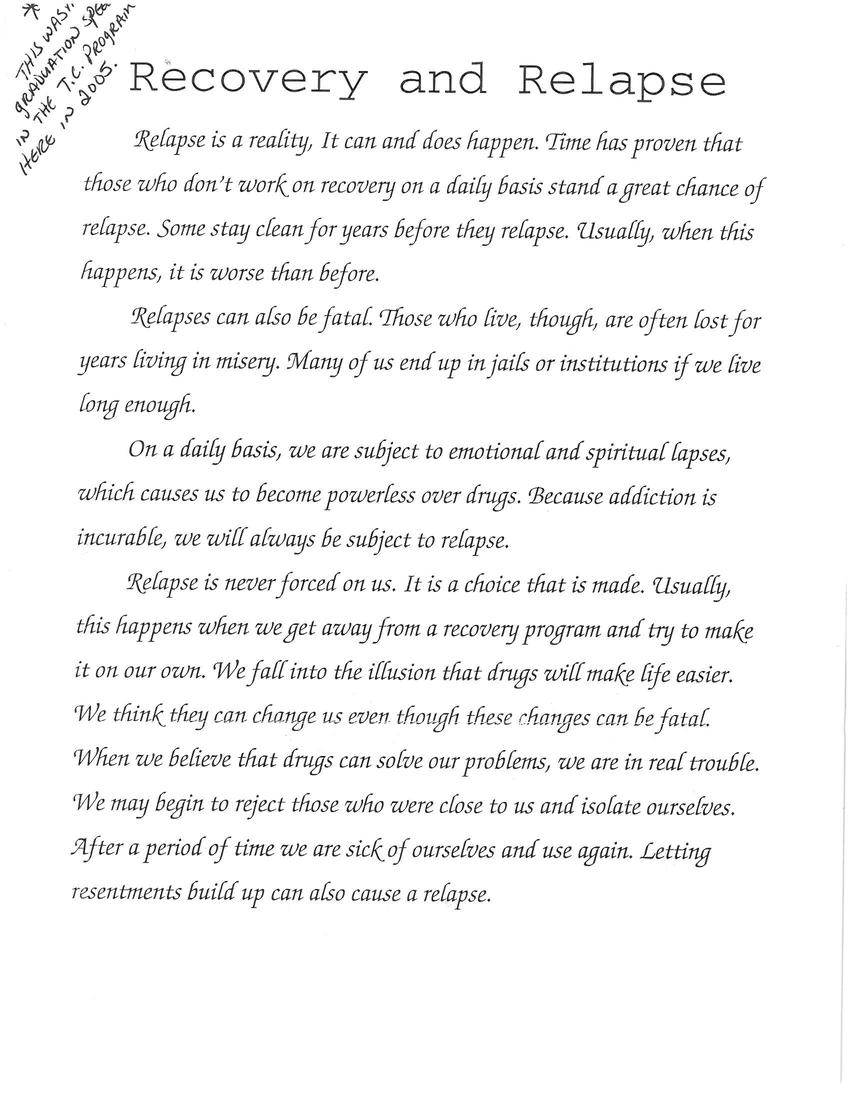
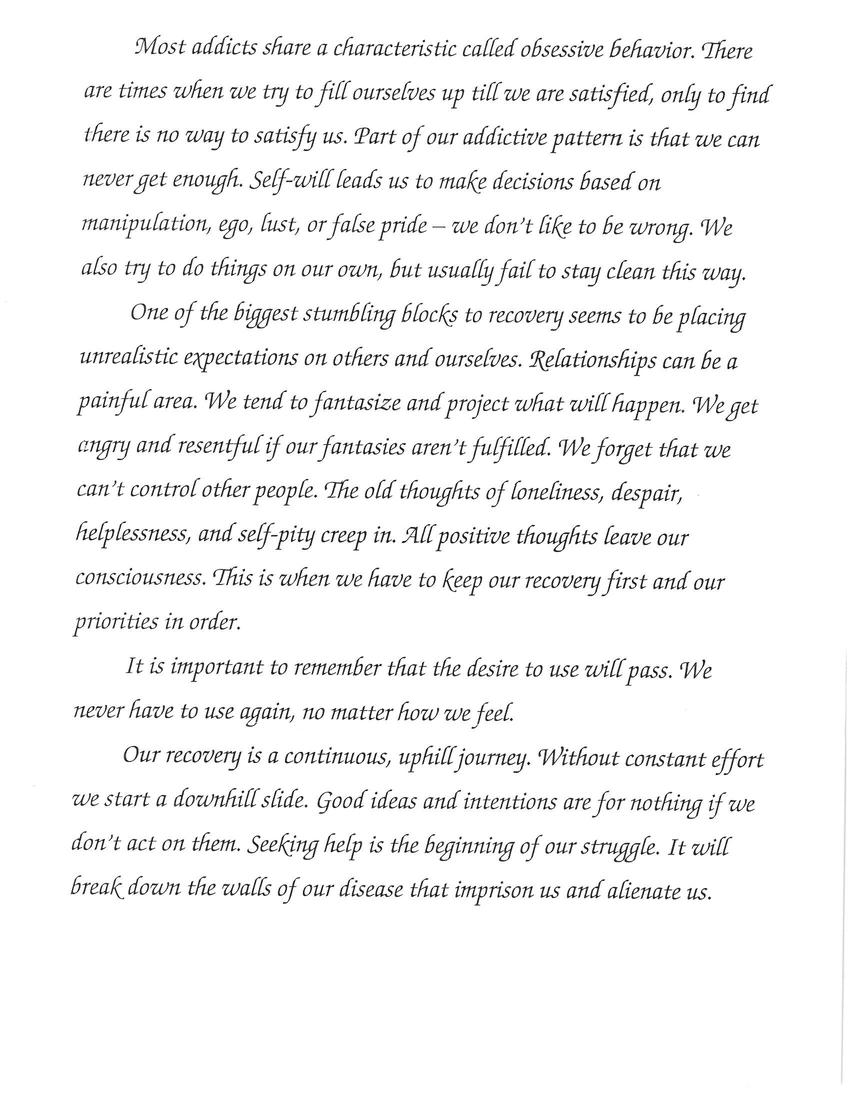
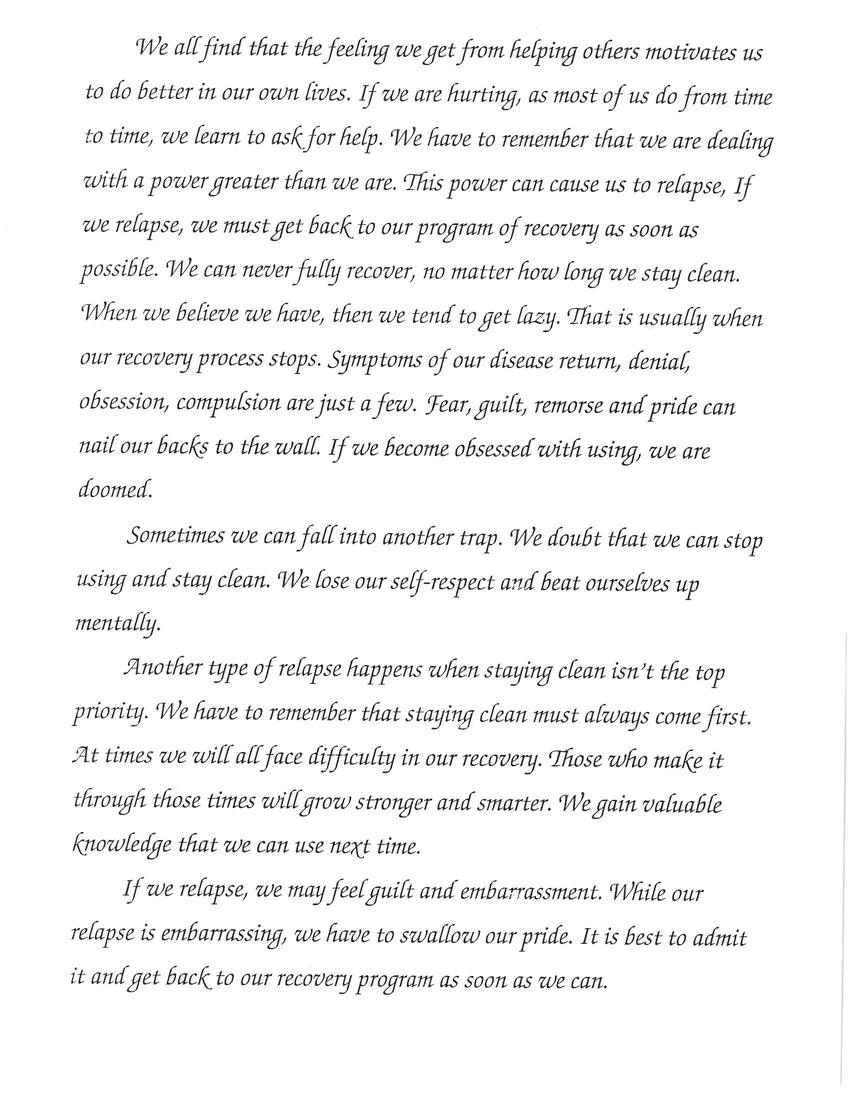
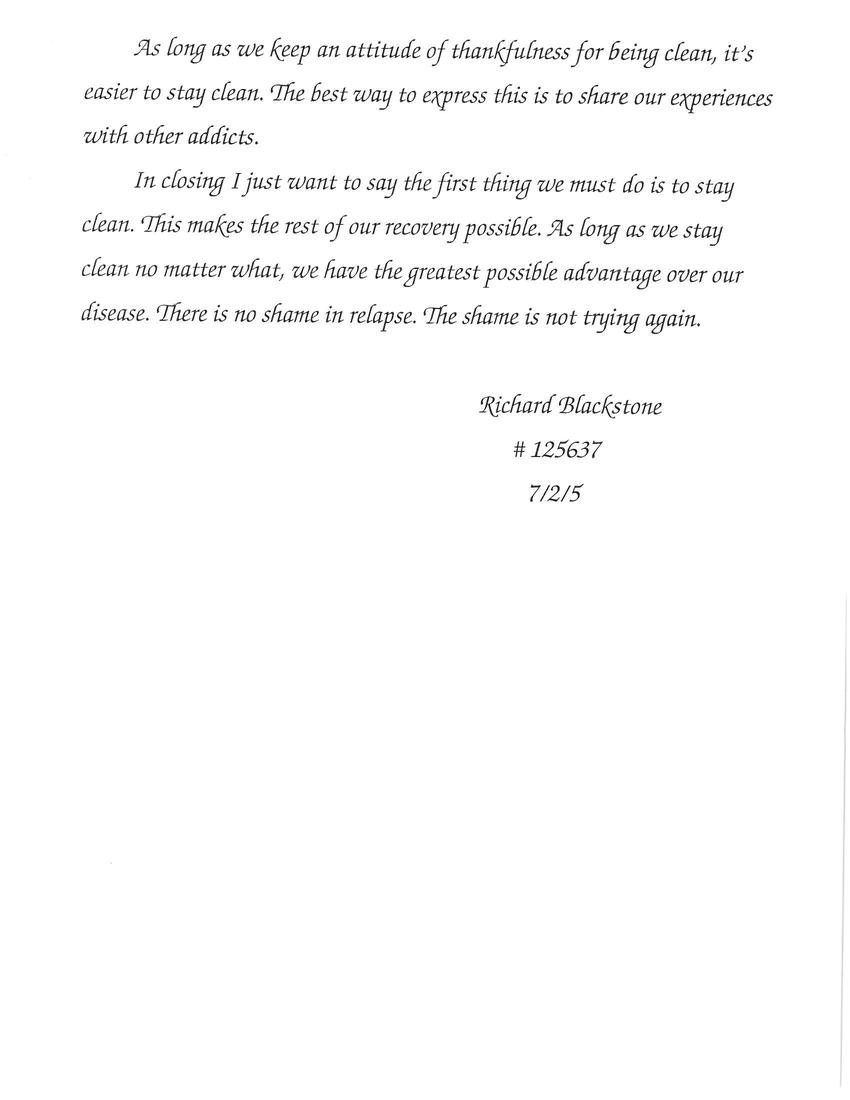

Replies